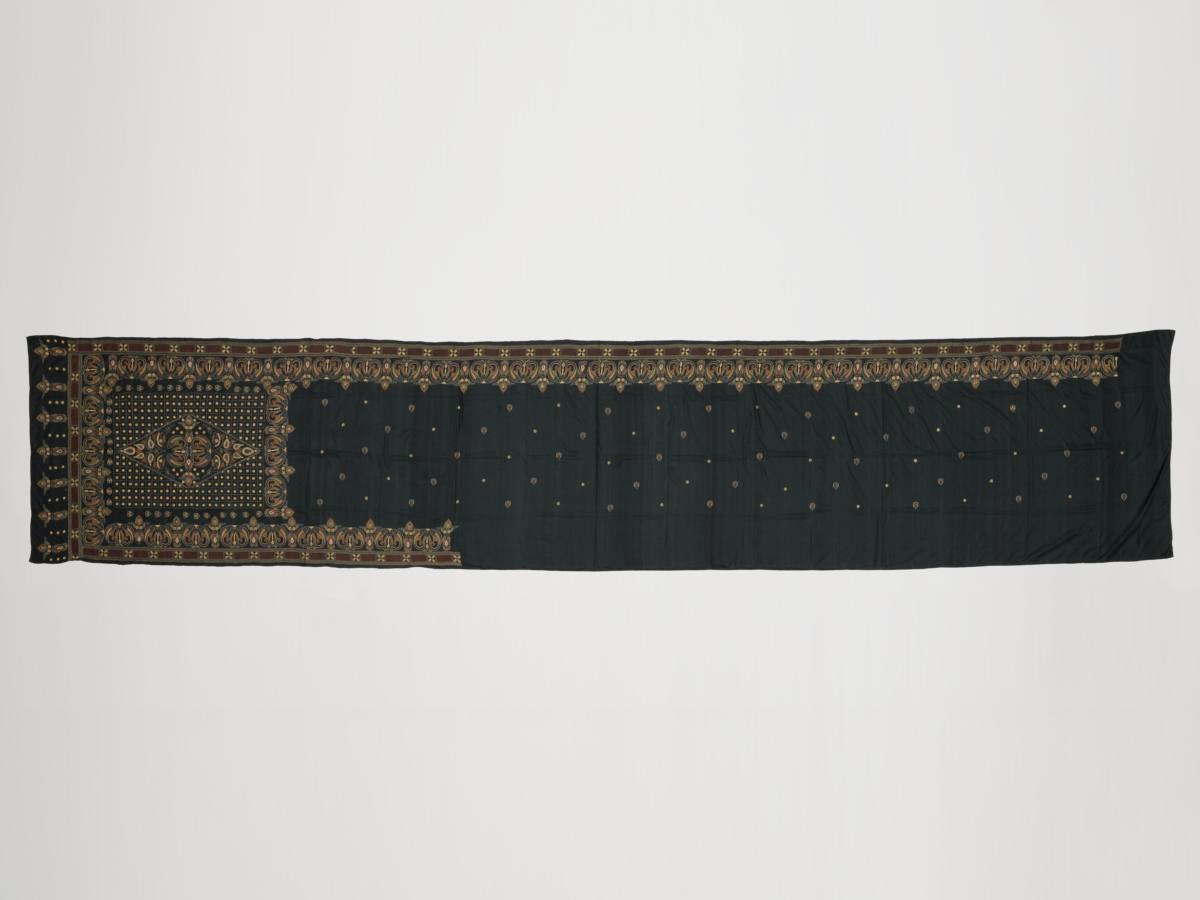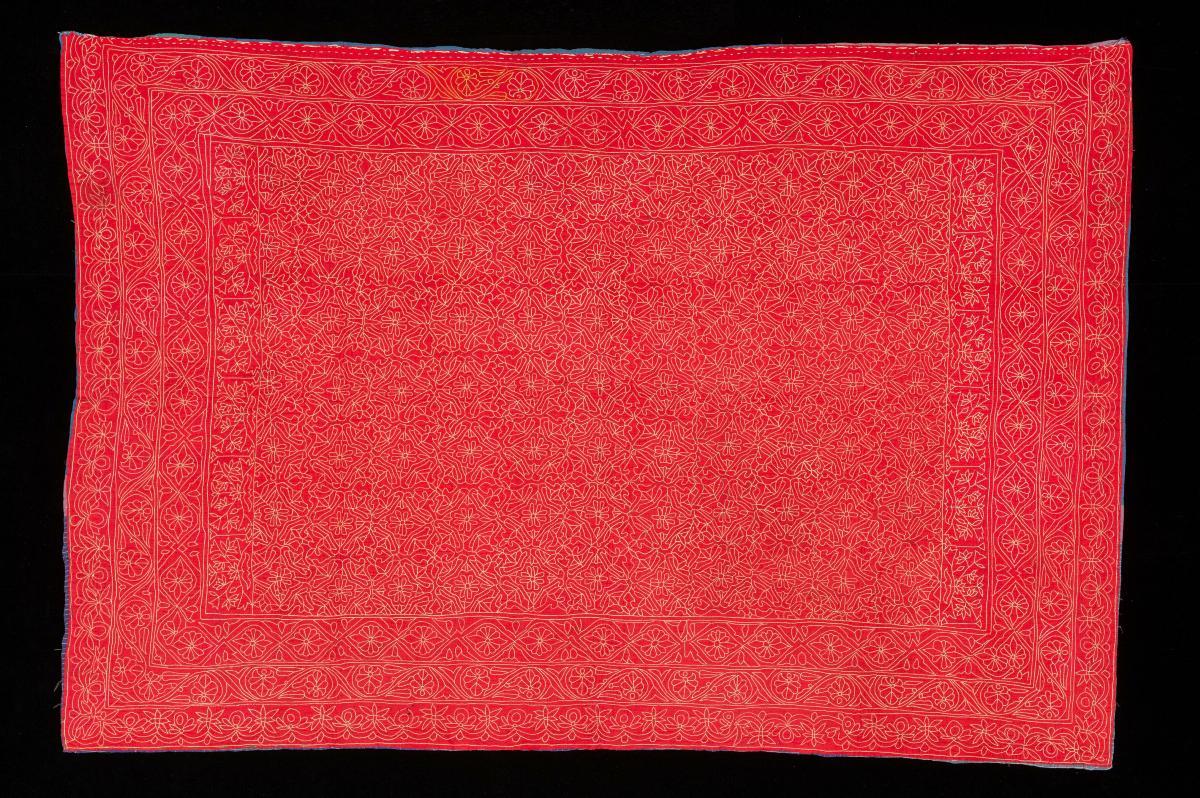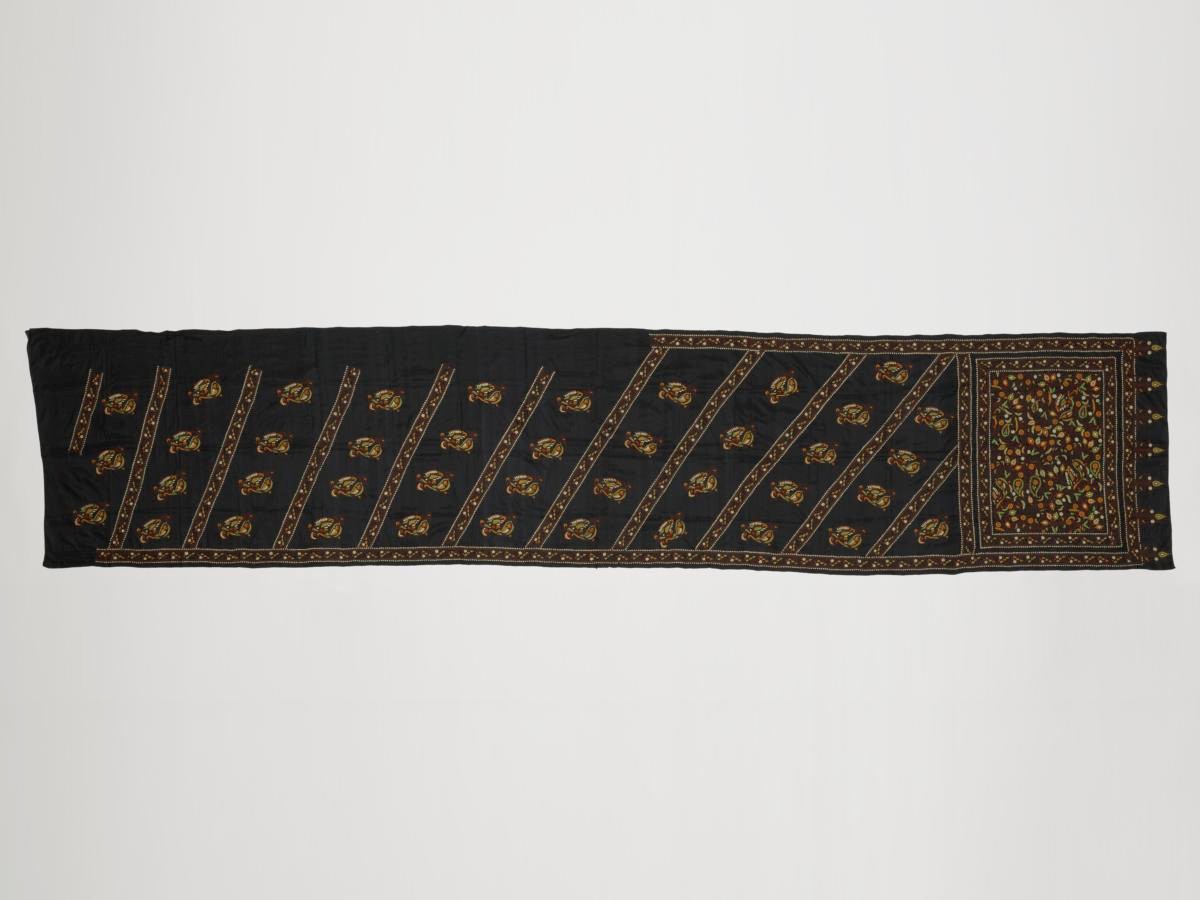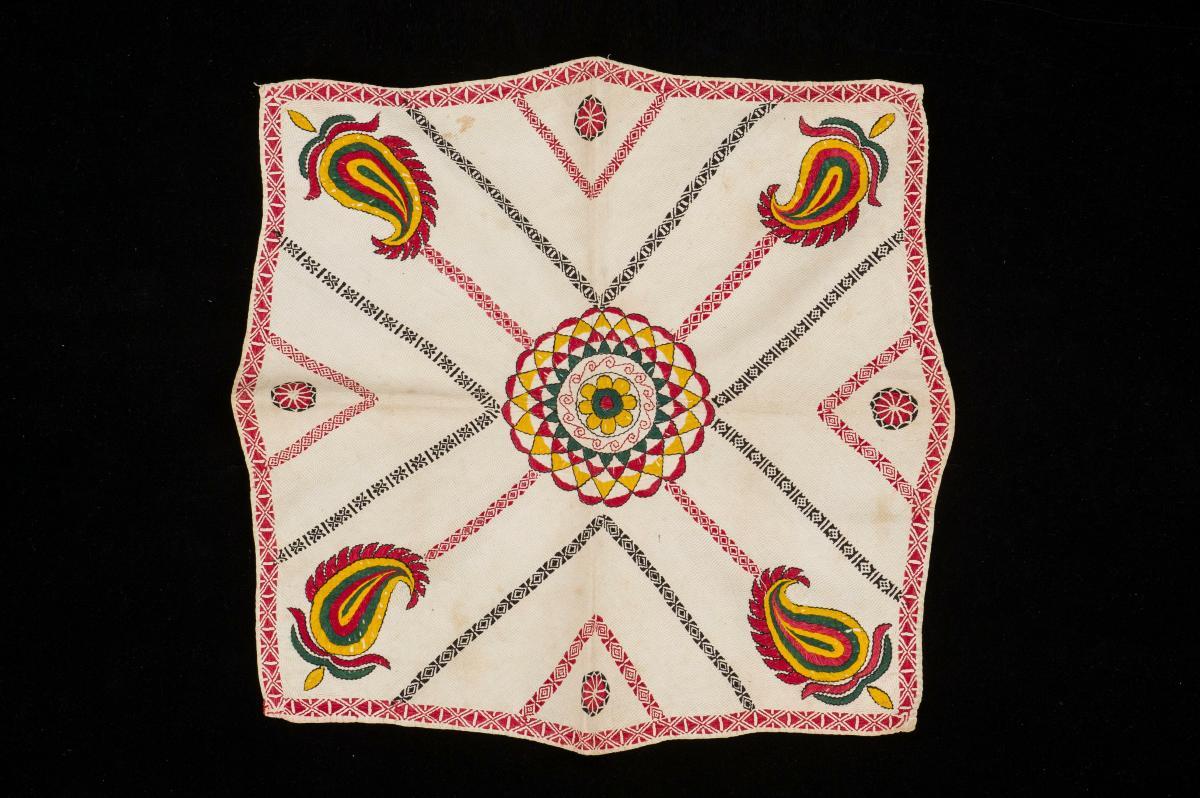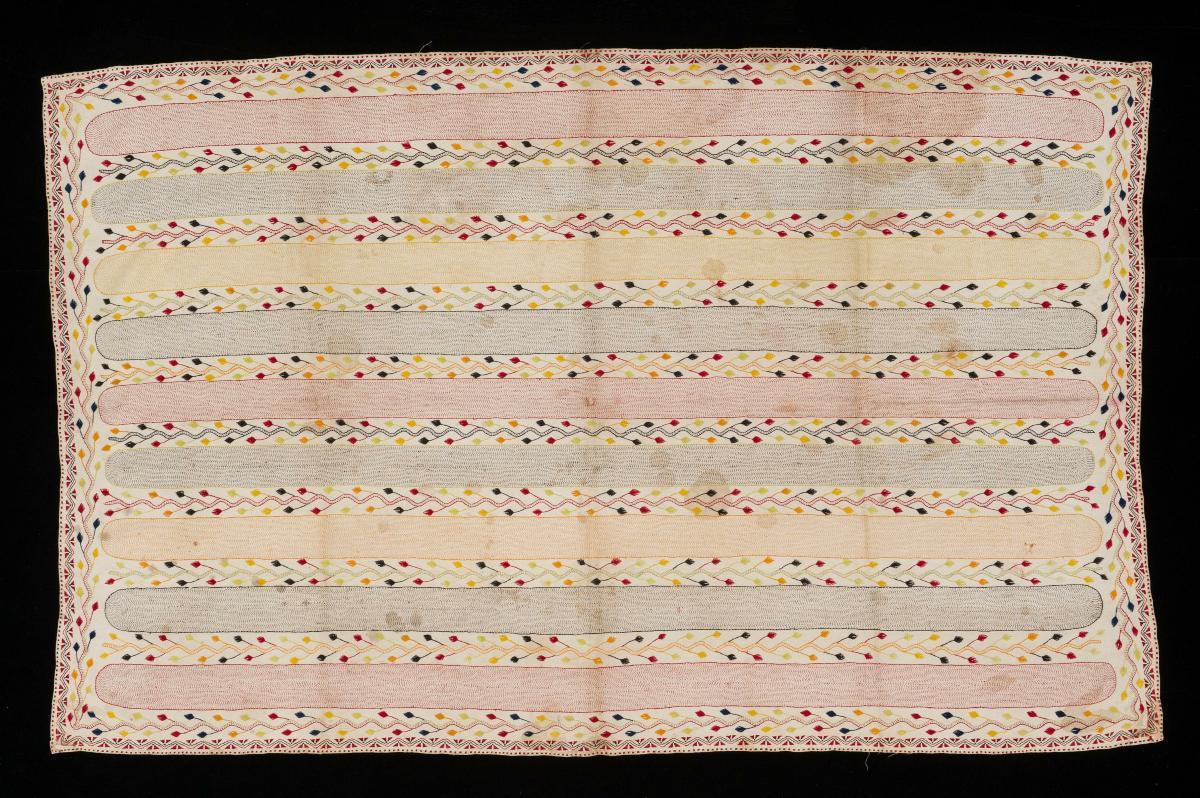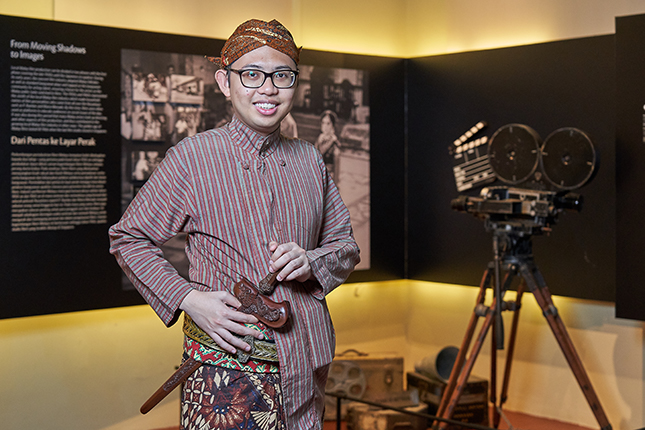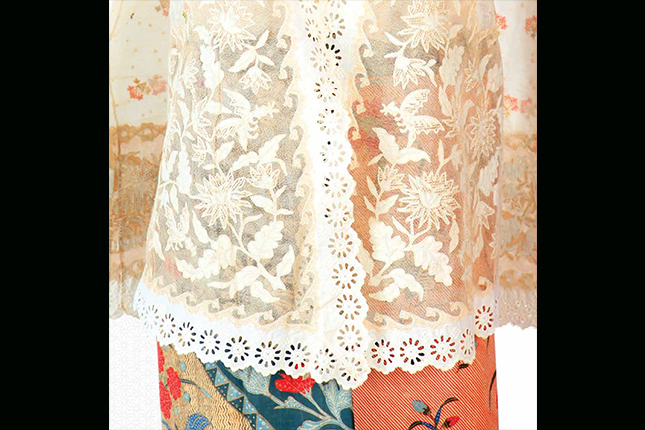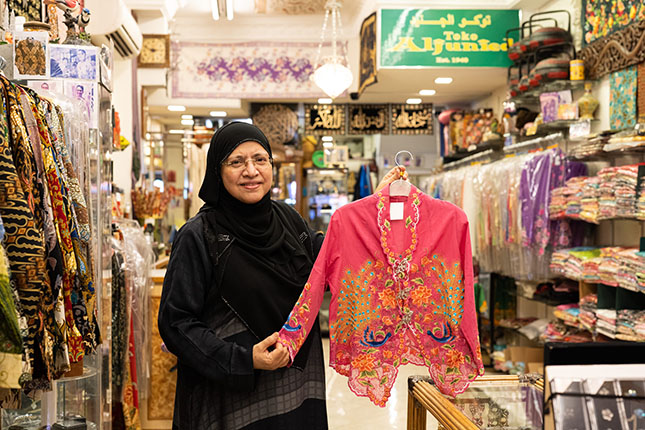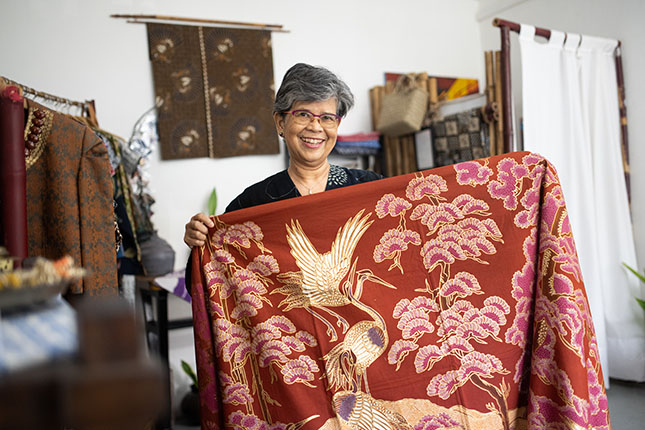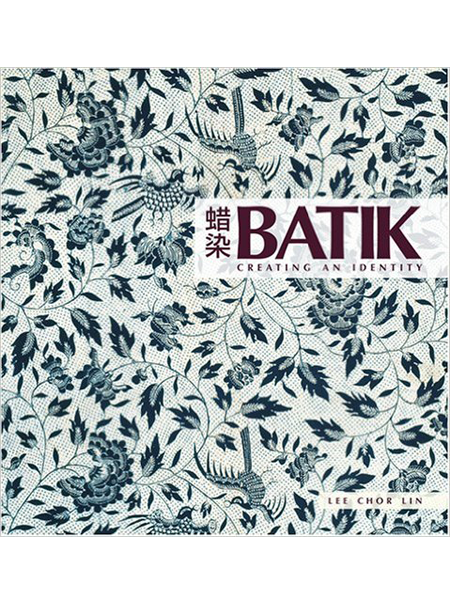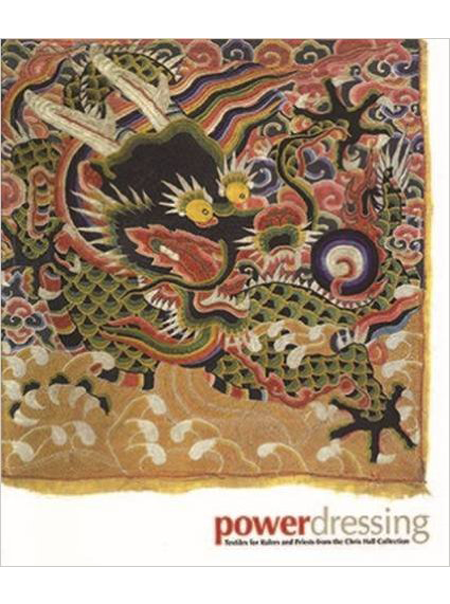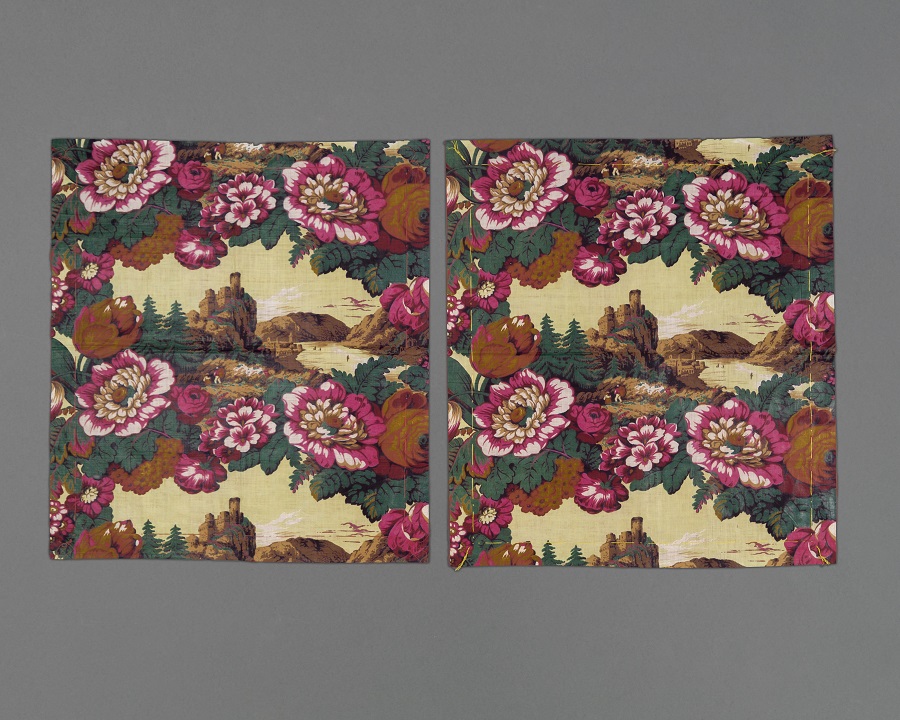Kantha refers to a running stitch and is one of the oldest forms of embroidery originating in India. It has humble beginnings as a craft practiced by rural and low-born women, the skill passed down from mother to daughter. The word kantha is also used for patchwork and possibly derives from the Sanskrit word kontha, meaning rags. It was not worn by royalty nor the nobility and had almost disappeared in the early 19th century before being revived in the 1940s by the daughter-in-law of the famed Bengali poet and Nobel laureate, Rabindranath Tagore. From the collection of Minaldevi Mahadevia Daftary (1939-2015). Minal was born in Ahmedabad, Gujarat, and her family were co-founders of one of India's most prolific textile manufacturers, the Mafatlal Industries. Minal was a celebrated dancer, especially in three classical dance forms - Bharatnatyam, Kuchipudi and Kathakali from the 1950s to 1970s, and she travelled and performed across India. She loved textiles and clothes and purchased the best examples of saris from famous weaving centres to form an extensive and important collection.




